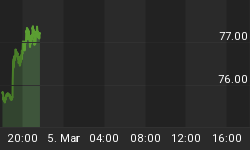Helicopter Ben Bernanke has earned the new moniker of Banana Ben. He has earned the new name because of his desire to make the United States resemble a banana republic instead of embracing the policies that made the U.S. the greatest nation on earth. It is now abundantly clear to all that not only the Fed Chairman but also this administration will do everything in their power to create inflation. Their efforts are derived from the mistaken belief that inflation can solve everything.
Listen to two quotes from the administration about their desire to re-inflate the credit bubble that wreaked havoc on our economy earlier this decade. Barack Obama said on March 17th that his $15 billion move to bolster the securitization market will be "a jolt in the arm for community banks." With his own exhortation, Treasury Secretary Tim Geithner urged banks "to go the extra mile" regarding increasing lending and that they have a "special responsibility" to assist in the recovery. And the administration is actually going to force the 21 largest banks getting bailout money to provide a monthly report on how much they are lending to small businesses.
But the mother of all efforts to return to inflation nation came from the Federal Reserve. Following the FOMC meeting on Wednesday March 18th, Mr. Bernanke gave all investors a final warning to get out of cash with his plan to expand the Fed's balance sheet to nearly $4 trillion. It did not phase the Fed head that earlier that morning the Consumer Price Index was released and showed inflation growing at a 1.8% annual rate. He remained undaunted by the fact that MZM (money of zero maturity) is up over 12% from last year. He does not care that Total Loans and Leases at Commercial banks are up 2.5% YOY. In fact, he is not worried about inflation at all. He is concerned about deflation even though he does not understand the definition of it. Deflation is a fall in the money supply not collapsing prices in assets that were previously in a bubble.
Despite those facts, the Fed decided to increase its already skyrocketing balance sheet by $1.2 trillion. The most egregious part of the Fed's announcement that it will purchase up to $300 billion of long term Treasuries. In yet another miscalculation by the Fed, it mistakenly believes that China will be comforted that the price of Treasuries will be supported by the Fed but will be paid off in worth less dollars.
But by far the biggest misstep by the Fed and Administration is the belief that this liquidity can be removed once the economy recovers. Ten year bond yields collapsed the most since 1962 (50bps), to yield just 2.5%. Loan rates are expected to drop to 4.25% for a thirty year fixed mortgage. Millions of loans will be made at this new, artificially-engendered rate. Since bank assets will be collecting income at a much lower rate, the Fed will be hard pressed to move rates higher in the future. Even a relatively small increase in the Fed Funds rate down the road could eliminate bank profits and put extraordinary pressure on their balance sheets.
As of today, total debt is over 360% of GDP. If banks increase lending that number is sure to grow. We also know that the National Debt, which is now over $11 trillion, is increasing at about a $2 trillion annual rate. If raising rates to 5.25% in 2007 sent the economy into a deep recession, how much room does the Fed have to raise rates in the future when the nominal level of debt and the percentage of debt to GDP will be much greater?
The truth is that this stimulus will be impossible to remove without bringing about another collapse in the economy; hence, inflation will be with us for a very long time. However, an inflationary path is seen as the Holy Grail by the Fed. Ben Bernanke, a "student" of the Great Depression, was apparently absent from class when the part of history that dealt with the hyperinflationary economies of South America and Africa was taught. Banana Ben believes inflation could have saved us from the Depression of the 1930's. He couldn't be more wrong. Depressions are caused by debt, not by a decrease in the money supply.
The truth is inflation completely destroys an economy by wiping out savers, crushing those who exist on a fixed income and crippling those at the lowest end of the income scale by raising prices of the most basic goods.
Further, what might surprise the new President -- allegedly a champion of the poor -- is that an increased supply of money is never evenly distributed throughout the economy; it always finds a home with the nation's most wealthy citizens who have access to credit first. Skyrocketing prices relegate the middle and lower classes to use all their available funds for the basic necessities of life. Since the demand for discretionary purchases collapses, unemployment rates explode and the economy is left in shambles.
Investors would be wise to continue trading in measurable portions of their cash holdings for gold. It may also be prudent to for some to speculate in the beaten-down bank and home building sectors for a brief period of time, as I believe the entire market will benefit from the initial stages of inflation -- the Fed and Administration may be able to provide a truncated period of ersatz prosperity before the terror begins. But because of their decision to monetize away what would have been a deep -- and necessary -- recession, the economy and country will be far worse off in the long run.
Be sure to listen in on my Mid-Week Reality Check.















